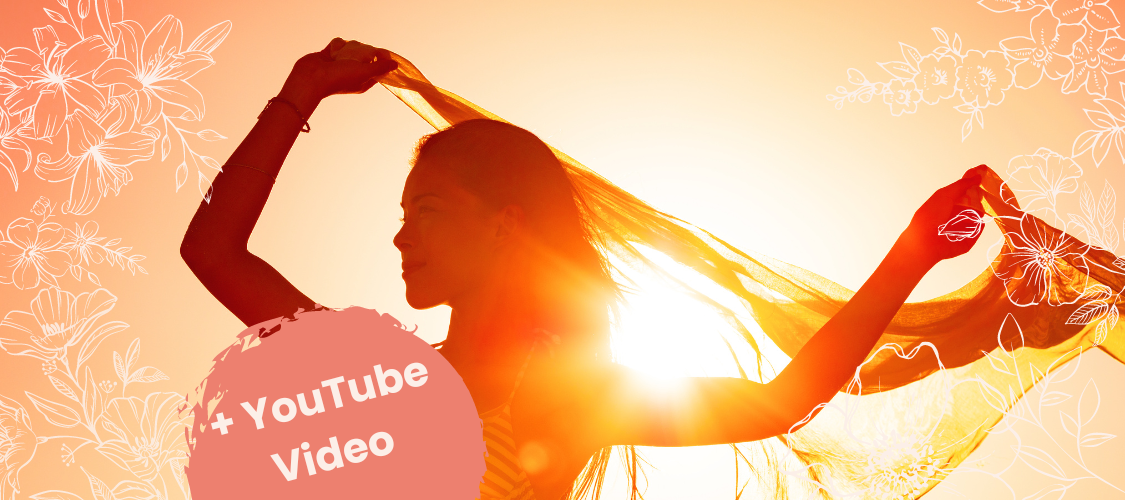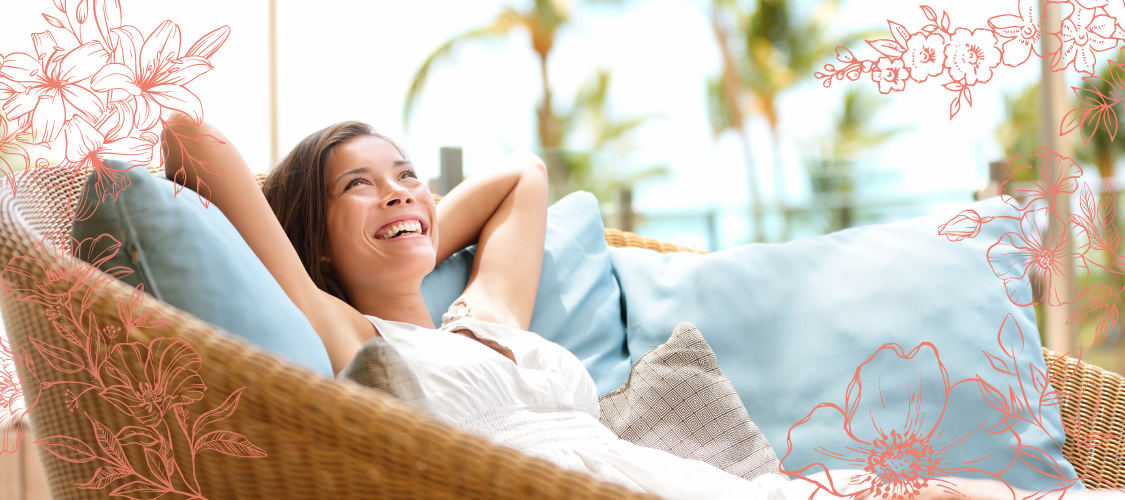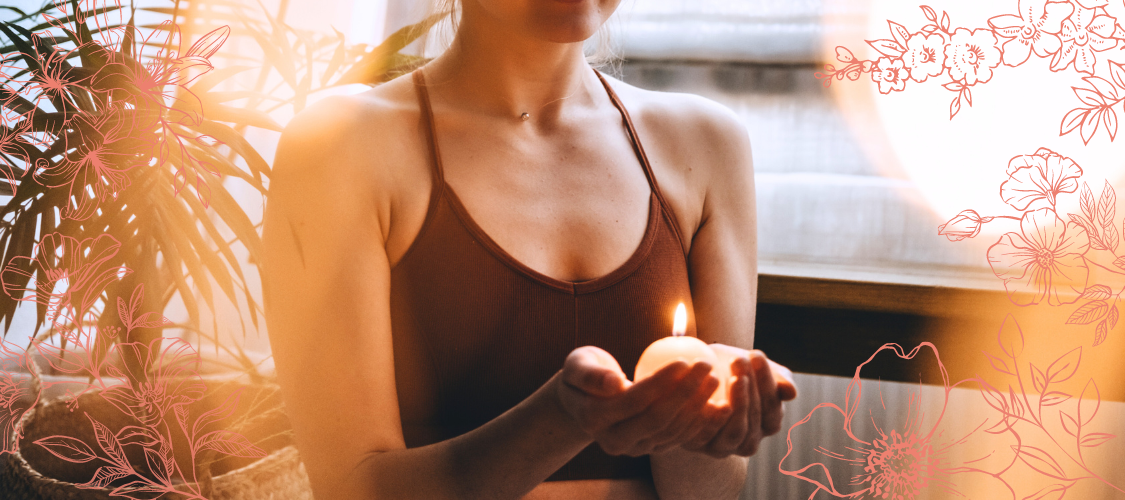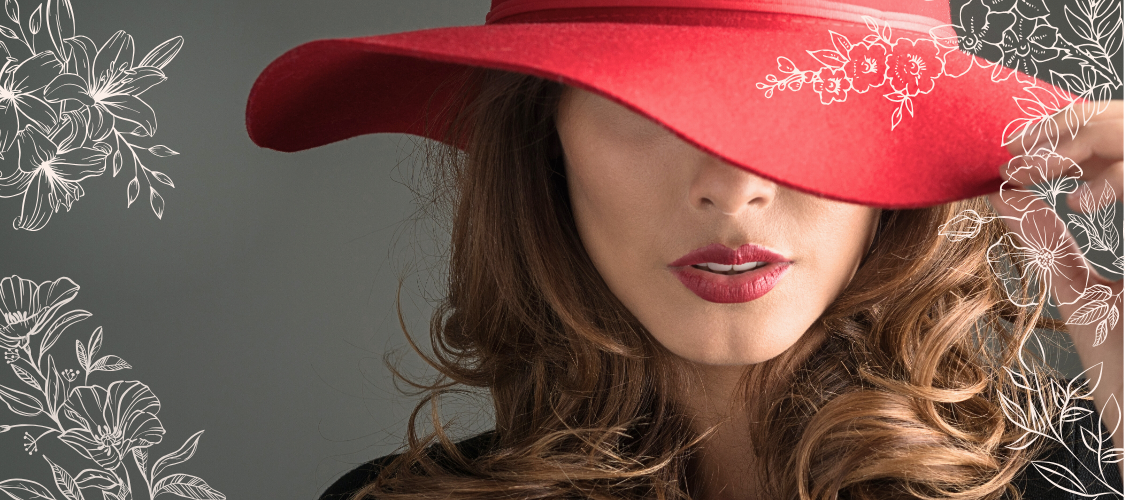Each person we meet, every connection we form, leaves an indelible mark, teaching us lessons about love, life, resilience, and the wants of the human heart. Our past relationships, whether sweet or bitter, long-lasting or fleeting, are invaluable chapters in the story of who we are becoming. Let me share the rest of my personal lessons learned from past relationships.
Check out Part 1 of the lessons to read my lessons learned from past relationships 1-5.
Lessons nr 1-5
Check out Part 1 of the lessons to read my lessons learned from past relationships 1-5.
Lesson nr 6: Be Authentic But Emotionally Controlled
* Tl;dr version *
Recognising and communicating emotions effectively within relationships is super important. Engage in self-reflection and meditation and express your feelings calmly and vulnerably using ‘I feel’ statements. But learn to distinguish between intuition and anxiety.
We all know the feeling when our boundaries are being stepped over but we have no courage to say anything. The resentment grows until we explode at some point over something small.
It’s very important to identify our emotions through self-reflection and meditation and, if needed, share your feelings in a calm manner and be vulnerable. I wrote “if needed” because sometimes our emotions don’t have much to do with what the person did but something we ruminate over and over and we have to deal with it on our own.
Read more about intuition on blog Bloem by Annie. She wrote a very comprehensive guide on how to develop intuition with ease.
Intuition vs Anxiety
Try to recognise which one is speaking – is it your intuition that you should act upon or the anxiety and past traumas. Intuition usually comes as a calm hunch that arises from a deep inner knowing. On the other hand, anxiety may manifest in your body as tension, restlessness, or a racing heart and it’s triggered by specific thoughts.
It takes some practice to differentiate between these two, but it’s a truly one of the most valuable lessons learned from past relationships.
Share your feelings when the emotions don’t run high and use the “I feel” statements. Take responsibility for your feelings and don’t blame the person because this only activates the defence mechanisms; try to avoid the word “you”. Say:
Hey, can I share something with you? I felt… (sad, confused, ignored, neglected etc…) when I am not taken into account in the plans (for example).
Remember to not only share negative emotions, but positive also. Don’t activate your vulnerability only when you feel triggered. Build a history of both positive and negative sharing of feelings to build safety, balance and emotional intimacy.

Lesson nr 7: There’s no Relation Without Communication
* Tl;dr version *
Open and honest communication in relationships is key. Express your feelings, listen empathetically, and understand each other. Ask reflective questions, taking moments to gather thoughts, and avoiding scorekeeping.
Sharing your thoughts and emotions is key in building a healthy relationship. Express your feelings and be open to a response. Effective communication is a two-way street. Encourage your partner to share their perspective and feelings, and be willing to listen without interrupting or becoming defensive.
Ask questions to understand. Listen as if you’re wrong. And remember that the goal of the discussion is to understand each other and solve the problem, not to win the debate. People are emotional beings and sometimes you need to throw away the logic out the door and instead – be understanding, accepting and coming from the position of love.
It’s okay to say “I need a moment to think how I feel about this” or if the things become too heated “I need to get some air to clear my head”. These are much better than acting on emotion and continuing the intense discussion while both partners don’t think straight anymore, with a raging amygdala – our emotional centre.
Questions to Ask Yourself
When you decide to communicate something, ask yourself these questions:
- Why am I communicating this?
- What do I want to achieve with this?
- What feels good to me now?
- Am I trying to control or manipulate the other person?
Some couples say they never argue. If you don’t have disagreements and arguments you probably don’t communicate enough. Some things might just be swept under the rug and in the long term it’s not a good solution, because it can build resentment over time or the feeling of being misunderstood.
Compromising means both parties don’t get what they want thinking that the other person got more out of the deal than we did. Some people even keep the score inside of their heads unknowingly, which causes resentment over time. Nasty stuff.

Lesson nr 8: Compatibility
* Tl;dr version *
Compatibility in relationships extends beyond shared values and lifestyle. Effective communication, understanding attachment styles, and addressing issues like emotional walls and sexual compatibility are crucial for successful relationships, highlighting the importance of open communication and mutual understanding.
I learned that compatibility is not only having the same values, plans for the future, religion and a lifestyle. I learned the hard way that it includes a little more and these are even more important than the rest.
From now on I have to “scan ” potential partners to determine the communication and attachment styles as well. These are crucial.
If people don’t communicate and keep things in, there’s essentially no relationship. Many relationships are on the edge of breaking and one thing that is a death sentence for a relationship is if you try to communicate and understand but the other person completely closes in their high walls they’ve built around their hearts. Game over.
But if you have two people who might not securely attached and not willing to open their eyes to an idea to work on it and heal within the relationship, this is also bad news. Especially avoidant-anxious couple trap can bring both partners to the state of no return.
There’s also sexual compatibility and if you and your partner value sex differently or have different needs, it can ruin the relationship if the communication isn’t right also.
Lesson nr 9: We Attract What We Already Are
* Tl;dr version *
The universe provides what I am ready for. Self-reflection and personal growth in relationships is key. I also shared my personal experience where compatibility alone couldn’t sustain my relationship, highlighting the significance of being emotionally prepared and having a growth mindset for lasting connections. Sometimes, timing is everything.
This might be the most difficult of the lessons learned from past relationships, because it comes with a lot of guilt. But don’t beat yourself up and forgive yourself.
The universe gives us what we are ready for, no less no more. If something comes your way you are not ready for, you might not even notice. Things will come when they come. No way of forcing it.
People have lists of requirements for their future partners and there is one thing missing in the process of creating these lists. And it’s self-reflection.
Is the man from my list looking for someone like me? Am I already doing the things from this list also?
You might meet a man of your dreams but you won’t be ready to attract and keep him. This is why on this blog, I encourage you to adopt that growth mindset and a curiosity to improve yourself.
When You’re Not Ready, It Will Cost You
My last relationship started when I was in a truly terrible place. I was suffering from a lot of pain for months and I was not in a good mindset at all. This is when I started looking for some online friends, not necessarily relationships, but some contact with others as lying down in pain was a lonely business.
I met a great man. We met on Reddit and it turned out we had a lot in common. I was joking to my mum that I found a male me. And it was true, as we were having the same outlook on life and life plans also.
While we both felt ready for a relationship, we weren’t at the time. There were many unresolved issues on both sides and it cost us our relationship, with the most compatible man I’ve ever met.
I believe that if I was completely healed and had my anxious attachment style under control, things would look differently. Sometimes timing is everything.
You probably had such a situation also – someone was very fine but things just didn’t align. An important part of this experience is that you forgive yourself and let go of the guilt and resentment you might be feeling. If it didn’t happen – it was not meant to be and he was not your man in the end.

Lesson nr 10: Healing Before a New Relationship
* Tl;dr version *
Focusing on personal growth and emotional healing during singlehood. Invest in therapy and self-improvement to build a strong foundation for future relationships. Recognise the potential triggers, even in the absence of immediate relationship stressors, as the work doesn’t end in a new relationship, but continues and might be even harder.
It’s important that we develop ourselves and grow in our singlehood. This is what inspired the creation of this blog. I want to help you to get to the best, healed version of yourself as quickly as it’s possible and get back on track without burning any bridges. Only eliminating the bridges that are not compatible…
Focus on personal growth and healing. Go to therapy to learn how to control your emotions, recognise the triggers and make the best foundation possible for a new relationship and start enjoying your last months as a single lady!
After some time, you will feel like you are securely attached, life has never been so peaceful and being alone is not bad at all. This peace you provided to yourself only makes the anxious you in a relationship a distant memory and you think she is long gone.
While it’s very important to feel that, don’t be fooled. The inner work you did is amazing and was necessary. But right now, as a single lady, you don’t have any triggers around you as you did when you were in a relationship. This is why the next lessons learned from past relationships is crucial.

Lesson nr 11: Healing in a Relationship
* Tl;dr version *
Acknowledge your personal growth and remember that while newfound security in singlehood is a significant achievement, entering a relationship may bring back anxiety triggers. Embracing vulnerability, positive intentions, and self-focus. Your progress continues as long as you remain self-aware and open to growth within a new relationship.
As mentioned in the lesson above, at some point, you will feel like the most securely attached person there is. You have peace, your emotions in check and self-awareness. Well done!
Let’s remember however, that the triggers for your anxiety (relationship with a man) are not around at the moment. Once you enter a relationship, they will appear and the real work will start.
This is not to discourage you – quite the opposite! It’s just so that you don’t get discouraged when you meet someone and he pulls away (which they do a lot) and you start doubting your progress.
Your progress is there, it’s just that now we have a different type of work to do 🙂
Your new man also probably just needs a bit of work on himself so you can heal each other and help each other while in a relationship. Be vulnerable and see you grow together.
Remember about all the things you’ve learned: how to be your happy self without a man (because you were before he showed up!), how to give yourself peace, how to focus on yourself and your side projects, the detachment you practise from everyone else. You can read some of my other blog posts that can help with that (I linked them at the end of this post).
Always assume positive intentions and give the benefit of the doubt. Come from the place of love instead of fear as described in this blog post.
Acknowledge your progress and embrace the next stage of this journey and you will be alright!
Conclusion
This is the continuation of lessons learned from past relationships Part 1. Our past relationships serve as invaluable teachers, shaping our understanding of love, resilience, and self-discovery.
We explored five essential lessons: embracing the courage to love bravely, appreciating that endings do not diminish the value of experiences, understanding the importance of aligning with compatible partners, recognising the primacy of self-care, and prioritising self-love.
As we navigate the complex world of relationships, these lessons illuminate our path toward personal growth, empowering us to cherish the journey, learn from our experiences, and approach future connections with wisdom and self-assurance.
Remember, every relationship, past or present, is a stepping stone toward becoming the best version of yourself.
What were your lessons learned from past relationships? 🙂
Share your commitments and ideas in the comments below!
Recommended next post to read:
HOW TO NOT FEEL ALONE EVER AGAIN AND BE HAPPY
HOW TO BE YOUR OWN BEST FRIEND
18 POWERFUL SIGNS YOU’RE YOUR OWN BEST FRIEND
HOW TO BEST START YOUR DAY IN AUTUMN
HOW TO BECOME YOUR OWN DREAM GIRL









Pingback: Benefits of Post Traumatic Growth - How to Best Unleash Them - Rise and Thrive for Women